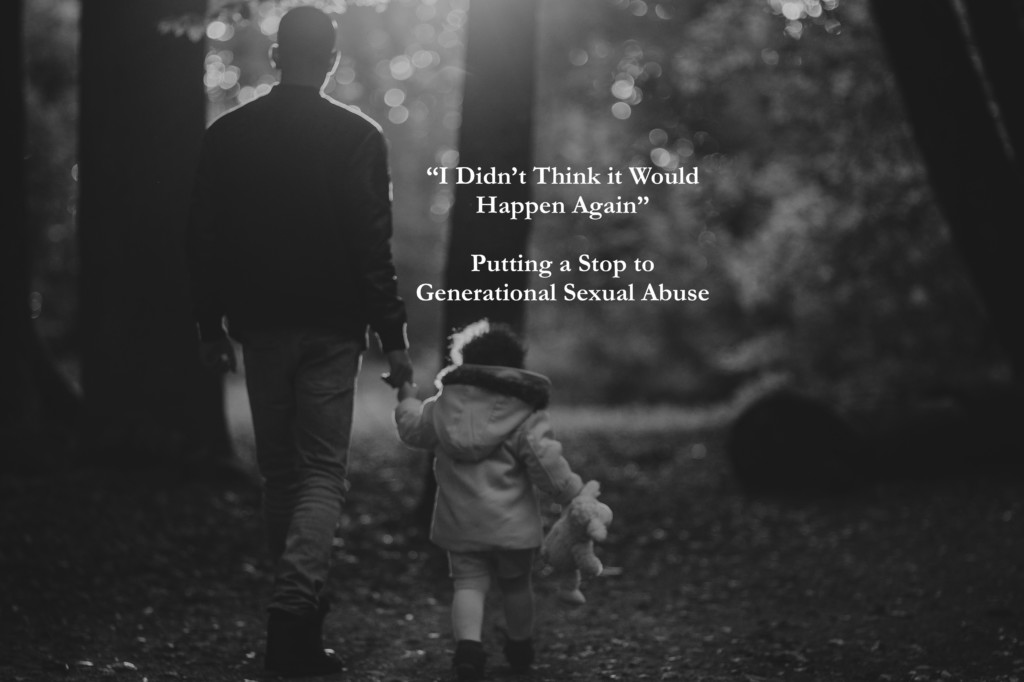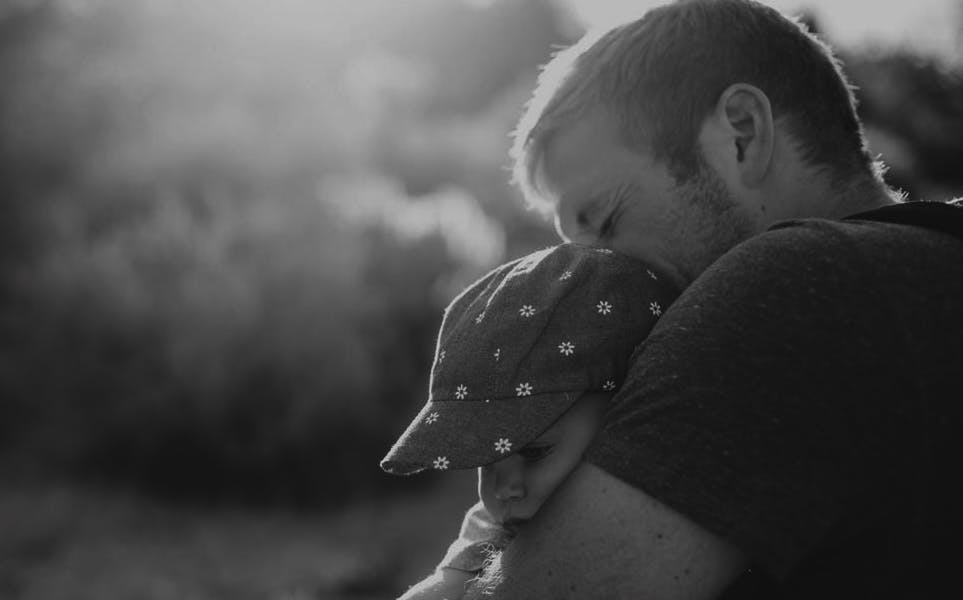She sat on my couch, shocked, devastated. As she began to tell her story, she pulled her feet up and sat with crossed legs, arms folded over the pillow she had drawn in to her chest. Even her body told the story. She was protecting herself.
 “She knew. She knew because he did it to her,” she whispered.
“She knew. She knew because he did it to her,” she whispered.
Now in her 40’s and a mom herself, she had just learned that her own mother had been sexually abused as a child. The devastating blow was learning that the same man who abused her had also abused her mother when she was a child.
“How could she not protect me from him? She knew what he was! I mean, that’s a mother’s job! It should’ve been her instinct!”
A few weeks later, her mom came to the session. “Well I never thought he would do that again,” was her unsuccessful attempt at rationalizing her actions. “AND, I did tell my daughter not to sit on his lap.”
I had to work hard to control my own emotions. I hurt for my client. I wanted to put my own arms around her and tell her that she was right. She SHOULD have been protected. There was no excuse.
I would like to say that this was an isolated case. But the more and more I work with families where abuse has occurred, I have come to recognize that this scenario happens more often than it should. It may not be the norm, but I have seen it in happen in several cases I have worked with.
Normalized Dysfunction
For those fortunate to have never suffered abuse within a family, there is likely an immediate pushback, an anger that says, ‘WHY?! Why would anyone let their child around a known abuser?’ It is certainly a valid question. But I think it is difficult to understand the norms of dysfunctional families unless you’ve been raised in one.
It’s almost like living in a parallel universe. It may look the same from the outside, but inside, the rules are different. The relationships are both strained and enmeshed. Secrecy is often the number one family value. Shame operates like a currency and abusers know how to negotiate it expertly. Victims, even in adulthood, fear hurting Grandma or breaking up the family. They bear the weight of the fallout that would come from exposing the family secret.
There is frequently also a great deal of denial that what occurred is actually abuse. When a person grows up with certain behavior being the norm within in a family, they think it is the norm everywhere. Abuse is often excused as being “a misunderstanding” or “just how men are.” I’ve heard victims tell me that when they were growing up, after being fondled, it was excused as “oh well, he’s just a dirty old man. Just stay away from him.” These messages, when they become the norms in a family, serve to gaslight the victim into thinking that what they experienced was nothing to be concerned about.
And sometimes, family members often optimistically hope that things have changed. No one believes that they are delivering their child into the hands of an abusers. Rather, they believe that now that Paw Paw is an old man, he would never do that again. That now that Uncle is going to church, his problem has been resolved. And so, they continue operating in this dysfunctional system, interacting with their abusers at every Christmas and Thanksgiving.
And allowing their children to interact with these family members.
It doesn’t just happen at holiday gatherings or the occasional get-together. Often, family abusers become very adept at intertwining themselves in children’s lives. They might offer to lend a hand to an overwhelmed parent. They might shower the family with gifts or financial support so that after receiving these gifts, the family feels that they would be unappreciative to question the person’s motives.
But this is exactly what abusers do. They ingratiate themselves. They charm your kids. They are nice and kind and often very helpful. And sometimes, without even realizing it themselves, they are grooming not only the children, but the parents themselves.
The Danger of Denial
Sometimes parents, like my client’s mother, justify the continued involvement by promising to keep an eye on things. There may be internal rules like “I just won’t let her sit on his lap.” Or “I won’t let them go off alone.”
But Moms and Dads, you need to hear this: You simply cannot let your child be around someone who has a history of being an abuser.
Even if it was just one time.
Even if it was a long time ago.
Even if the abuser is really sorry.
While I believe in rehabilitation as much as anyone, its still a no. While I believe wholeheartedly that Jesus saves and therapy works, it is still a no. Because here’s the thing: even if your abuser does deserve a second chance, you have to let that be God’s job.
You cannot sacrifice your innocent son or daughter to be the test subject upon which that abuser proves himself. There is simply too much at stake.


Because here’s where you don’t want to be. You don’t want to be in a counselor’s office forty years from now, looking into the broken face of your child. The damage cannot be undone. And the question they will ask you will haunt you for the rest of your life.
“Why didn’t you protect me?”
The contents of this article are not meant to represent or replace mental health counseling. If you are interesting in counseling, you may contact the author HERE, call your insurance provider, local hospitals, or mental health agencies. If you are in crisis, call 911 or go to your nearest emergency room.
















